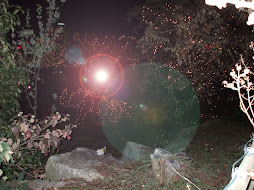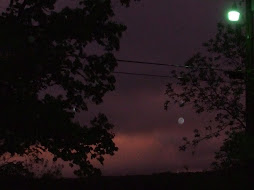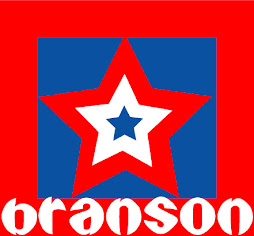Mark-Paul Gosselaar Slams Saved By The Bell: ‘Hokey’ Show Was Not That Great This wasn't sour grapes or "biting the hand that made him": It was his really nice way of saying "It sucked," and of telling the truth. Gawker. Excerpts:
Biting the hand that made him, actor Mark-Paul Gosselaar — still best known as scampy preppy Zack Morris from Saved by the Bell — recently made some less than flattering remarks about the much-loved late-80's, early-90's sitcom.
"It's not a great show," Gosselaar told Yahoo! TV during an interview to promote the second season of his TNT courtroom dramedy Franklin & Bash. "The writing is kind of hokey… it's very much a piece of that time."
Saved By The Bell was a shitty show, as any show aimed at tweens is a shitty show. Television for tweens is for short term entertainment only, not inclusion in Television's pantheon of classic programming--It's designed to keep nine to 13 year olds distracted and laughing for 30 minutes. It was beyond hokey. Mark Paul Gosselaar acknowledged that fact in a very diplomatic fashion. Deal with it. Or, better yet, go back and watch that shit--Sober--And tell me how fuckin' great it is. 90 percent of respondents will remember quickly how very "hokey"/crappy it is. The other 10 percent, well; I guess those really sad forums were created for them. Godspeed to you all, then..
Entertainment media coverage is a strange mix of patronizing treatment of celebrities for access, and revising even substandard programming/projects upward also in exchange for more access and content for "Entertainment News'" ever increasing programming share. After so many repeated distortions ("Saved By The Bell? Classic 90's Television!"), people begin to believe the lie. Time, and a project's relative importance or quality is distorted by a diminished sense of Discernment, and the sheer size and magnitude of Entertainment's stimulus upon society. An example of distorted history: E! or VH-1 ran a story about Colbie Calliat's career longevity(!). She's been around since 2007.. Five years is not a long time, but it's nice to say in a PR piece, then pop culture people pick up on this narrative, and suddenly Colbie Calliat has career longevity. It's disturbing as to how simple it is to change the narrative by the people who already control said narrative.. No matter how superficial(or not), the message is easily erased and written again..
It's interesting to note that most of our perception regarding any facet of, or Entertainment Media in its totality: Film reviews, any product roll out, artist saturation, PR campaigns, a radio or music on in the background, heightened credibility through mainstream news inclusion, the Film, Television, Recording, and Literary industries, its real-time integration into every crack and crevice of our lives, and most importantly, how we respond to this stimulus, is perception guided by demographics, created by and for the industry itself.. How we view the Entertainment Industry historically and up to the moment,is almost exclusively controlled, directed, and disseminated by that very same entity. Entertainment, and its history, is documented and categorized almost exclusively by itself, and we feel how we are marketed to feel.
As minority perspective (think You Tube, et al..)fails to significantly alter the prevailing energies any more than randomly and with only minor effect at most, Entertainment's perception of its self is a closed system that continues to strengthen in conjunction with its almost total societal saturation. And most of us, myself included, are way too comfortable with what is really way too much stimulus, and way too uncomfortable with the notion of silence. It's how we're made to feel, but not how we are supposed to feel.
Biting the hand that made him, actor Mark-Paul Gosselaar — still best known as scampy preppy Zack Morris from Saved by the Bell — recently made some less than flattering remarks about the much-loved late-80's, early-90's sitcom.
"It's not a great show," Gosselaar told Yahoo! TV during an interview to promote the second season of his TNT courtroom dramedy Franklin & Bash. "The writing is kind of hokey… it's very much a piece of that time."
Saved By The Bell was a shitty show, as any show aimed at tweens is a shitty show. Television for tweens is for short term entertainment only, not inclusion in Television's pantheon of classic programming--It's designed to keep nine to 13 year olds distracted and laughing for 30 minutes. It was beyond hokey. Mark Paul Gosselaar acknowledged that fact in a very diplomatic fashion. Deal with it. Or, better yet, go back and watch that shit--Sober--And tell me how fuckin' great it is. 90 percent of respondents will remember quickly how very "hokey"/crappy it is. The other 10 percent, well; I guess those really sad forums were created for them. Godspeed to you all, then..
Entertainment media coverage is a strange mix of patronizing treatment of celebrities for access, and revising even substandard programming/projects upward also in exchange for more access and content for "Entertainment News'" ever increasing programming share. After so many repeated distortions ("Saved By The Bell? Classic 90's Television!"), people begin to believe the lie. Time, and a project's relative importance or quality is distorted by a diminished sense of Discernment, and the sheer size and magnitude of Entertainment's stimulus upon society. An example of distorted history: E! or VH-1 ran a story about Colbie Calliat's career longevity(!). She's been around since 2007.. Five years is not a long time, but it's nice to say in a PR piece, then pop culture people pick up on this narrative, and suddenly Colbie Calliat has career longevity. It's disturbing as to how simple it is to change the narrative by the people who already control said narrative.. No matter how superficial(or not), the message is easily erased and written again..
It's interesting to note that most of our perception regarding any facet of, or Entertainment Media in its totality: Film reviews, any product roll out, artist saturation, PR campaigns, a radio or music on in the background, heightened credibility through mainstream news inclusion, the Film, Television, Recording, and Literary industries, its real-time integration into every crack and crevice of our lives, and most importantly, how we respond to this stimulus, is perception guided by demographics, created by and for the industry itself.. How we view the Entertainment Industry historically and up to the moment,is almost exclusively controlled, directed, and disseminated by that very same entity. Entertainment, and its history, is documented and categorized almost exclusively by itself, and we feel how we are marketed to feel.
As minority perspective (think You Tube, et al..)fails to significantly alter the prevailing energies any more than randomly and with only minor effect at most, Entertainment's perception of its self is a closed system that continues to strengthen in conjunction with its almost total societal saturation. And most of us, myself included, are way too comfortable with what is really way too much stimulus, and way too uncomfortable with the notion of silence. It's how we're made to feel, but not how we are supposed to feel.
































































































No comments:
Post a Comment